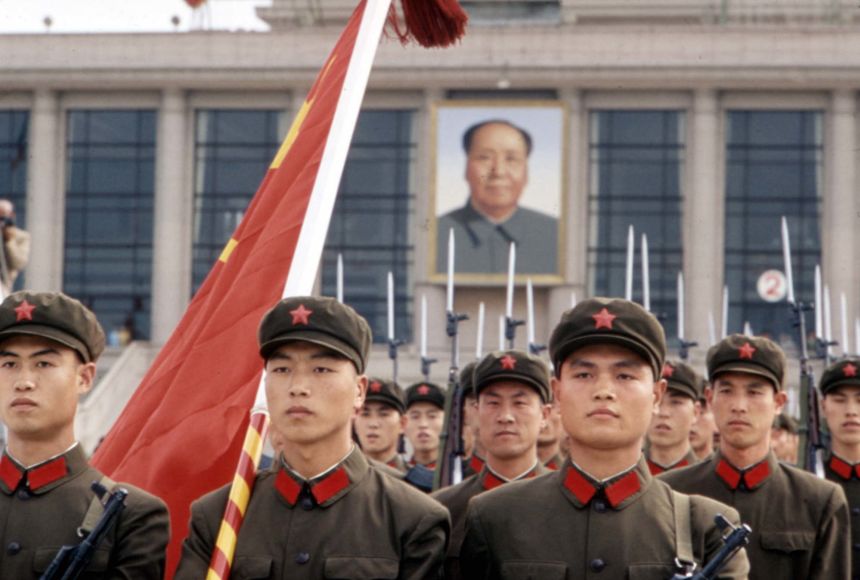ENCYCLOPEDIC ENTRY
ENCYCLOPEDIC ENTRY
Communism
Communism
Communism is a form of government most closely associated with the ideas of Karl Marx, which he outlined in The Communist Manifesto. Communism is based on the goal of eliminating socioeconomic class struggles by creating a classless society in which everyone shares the benefits of labor and the state controls all property and wealth.
Grades
5 - 8
Subjects
Social Studies, Civics, Economics
Image
Soldiers Marching in Beijing
China is one of just five proclaimed communist nations left. There were many more communist countries in 1973 when this photograph of Chinese soldiers was taken.
Photograph by J. Cuinieres/Roger Viollet via Getty Images

Media Credits
The audio, illustrations, photos, and videos are credited beneath the media asset, except for promotional images, which generally link to another page that contains the media credit. The Rights Holder for media is the person or group credited.
Director
Author
Production Managers
Program Specialists
Producer
Intern
other
Last Updated
November 1, 2024
For information on user permissions, please read our Terms of Service. If you have questions about how to cite anything on our website in your project or classroom presentation, please contact your teacher. They will best know the preferred format. When you reach out to them, you will need the page title, URL, and the date you accessed the resource.
Media
If a media asset is downloadable, a download button appears in the corner of the media viewer. If no button appears, you cannot download or save the media.
Text
Text on this page is printable and can be used according to our Terms of Service.
Interactives
Any interactives on this page can only be played while you are visiting our website. You cannot download interactives.